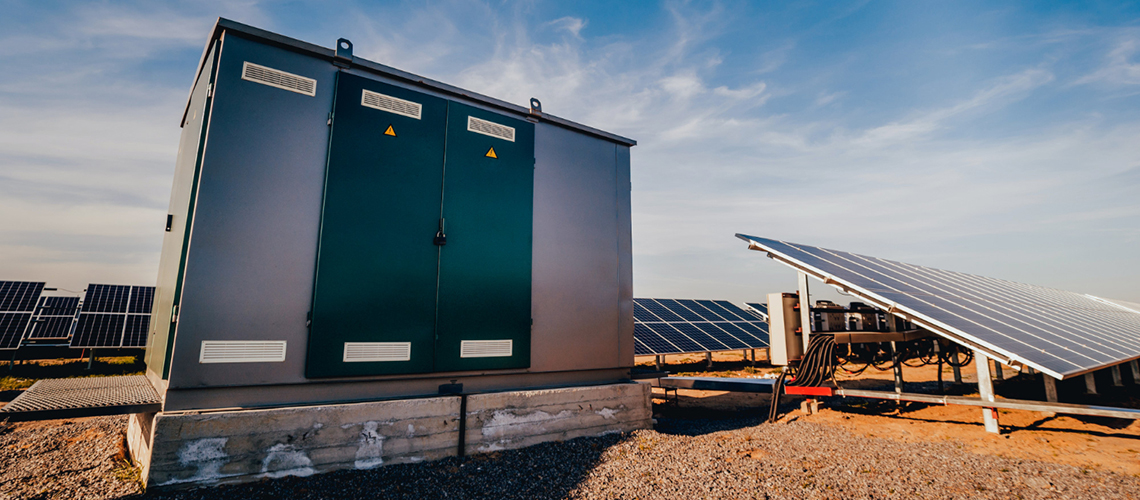Battery Energy Storage Systems (BESS): The Backbone of a Reliable Renewable Energy Grid

The shift to renewable energy in India is no longer just an environmental necessity, it’s an infrastructure priority. But as solar and wind power scale rapidly, one key challenge remains: reliability. Renewable sources are intermittent by nature, and without effective storage, surplus energy often goes unused while power shortages still occur.
That’s where Battery Energy Storage Systems (BESS) come in. These systems store excess power and release it when generation dips or demand spikes, keeping the grid balanced and efficient. According to the Central Electricity Authority (CEA), India will need 2380 GWh of energy storage by 2047 to support its net-zero emissions targets for 2070.
With growing interest from both the public and private sectors, including Jindal India Renewable Energy Limited (JIRE), BESS is fast becoming the backbone of India’s reliable renewable energy future.
What Exactly is BESS?
BESS stands for Battery Energy Storage System. In simple terms, it’s a big battery that stores electricity when production is high and releases it when demand peaks or supply drops. So, when a solar plant generates more power than needed during the day, that extra energy is stored in BESS. Come evening, when solar power dips, BESS releases the stored energy to maintain the supply. Smooth, right?
This ability to store and release electricity makes BESS a game-changer, especially for a country like India, which is ramping up its renewable capacity at breakneck speed.
Why BESS is Essential for a Reliable Renewable Energy Grid
Without BESS, the grid runs the risk of power outages, supply instability, and wasted energy. Imagine producing 300 MW of solar energy in the afternoon, but having no way to store the excess once the demand plateaus. That energy just goes to waste. BESS solves this by capturing surplus power and releasing it precisely when needed. The result? A smoother, more reliable energy flow, even when the weather doesn’t cooperate.
More importantly, BESS also helps reduce dependency on fossil-fuel-based backup systems, cutting down on emissions and pollution. It stabilises the grid, balances frequency, and makes renewable energy dependable enough to be the primary power source.
India’s BESS Push: A Big Step Toward Green Independence
India is not sitting on the sidelines when it comes to energy storage. With the government targeting 500 GW of non-fossil fuel capacity by 2030, BESS is stepping into the spotlight. Several large-scale projects are being planned and implemented, with support from both the public and private sectors.
A recent example? Jindal India Renewable Energy Limited (JIRE). We’re happy to share that JIRE recently received the Letter of Award (LoA) from NHPC for a 300 MW solar-plus-storage project. This project is a hybrid of solar power generation and battery storage, designed to ensure a steady power supply even when sunlight is not available.
While JIRE isn’t currently manufacturing BESS technology itself, we are actively investing and exploring this sector, alongside solar and wind energy. This move shows just how central BESS is becoming to India’s energy planning and transition.
The Rise of Battery Energy Storage System Manufacturers in India
As demand for BESS rises, so does the presence of battery energy storage system manufacturers in India. From startups to established energy giants, the race is on to develop reliable, cost-effective storage solutions. Companies are working on everything from lithium-ion batteries to newer technologies like flow batteries and sodium-ion systems.
This growing ecosystem of BESS manufacturers is essential, not just for powering homes and cities, but also for supporting India’s electric vehicle growth, reducing grid congestion, and enabling energy trading in future smart grids.
Wrapping Up
Battery Energy Storage Systems might not be as visible as solar panels or wind turbines, but they’re doing some of the most important work–making sure the energy we generate actually gets used when and where it’s needed.
As India moves towards a cleaner energy future, Jindal India Renewable Energy Limited, among others, is investing in smart solutions like solar-plus-storage projects. While JIRE isn’t manufacturing BESS yet, our focus on integrating storage into large-scale renewable projects underscores our long-term vision.
Reliable, renewable energy isn’t just about how we produce power; it’s also about how we store it. And in that story, BESS is no longer just a supporting act. It’s becoming the backbone.